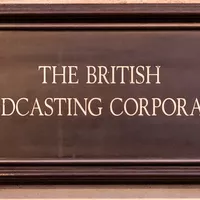Could vs Was able to - English In A Minute
Könnte vs. War in der Lage - English In A Minute
Could vs Was able to - Inglés en un minuto
Could vs Was able to - English In A Minute
Could vs Was able to - Inglese in un minuto
Could vs Was able to - イングリッシュ・イン・ミニット
Could vs Was able to - Angielski w minutę
Could vs Was able to - Inglês Num Minuto
Could vs Was able to - English In A Minute
Could vs Was able to - Engelska på en minut
Could vs Was able to - English In A Minute
Could vs Was able to - 英语一分钟
可以 vs 能夠 - 一分鐘英語
When do we use 'could' and 'was able to' to talk
Konuşmak için ne zaman 'could' ve 'was able to' kullanırız?
about past abilities?
o minulých schopnostech?
geçmiş yetenekler hakkında?
If it's a positive sentence, ask yourself
Pokud je to kladná věta, zeptejte se sami sebe
Wenn es ein positiver Satz ist, fragen Sie sich
Eğer olumlu bir cümleyse, kendinize sorun
if it's a general ability - which uses 'could',
pokud je to obecná schopnost – která používá „mohl“,
eğer genel bir yetenek ise - ki bu durumda 'could' kullanılır,
or a specific achievement - which usually
nebo konkrétní úspěch - což obvykle
veya belirli bir başarı - ki bu genellikle
uses 'was able to'.
používá „byl schopen“.
'yapabildi' ifadesini kullanır.
'I could run fast when I was younger.'
"Když jsem byl mladší, uměl jsem rychle běhat."
'Podía correr rápido cuando era más joven'.
'Я мог быстро бегать, когда был моложе'.
"Gençken hızlı koşabilirdim.
'I was able to win a medal.'
"Dokázal jsem vyhrát medaili."
Я смог завоевать медаль".
"Bir madalya kazanmayı başardım.
“我能够赢得一枚奖牌。”
But we do use 'could' for a specific event,
Ale používáme „mohl“ pro konkrétní událost,
但我们确实会用“could”来表示特定事件,
if we use verbs related to senses or thought processes.
duyular veya düşünce süreçleriyle ilgili fiiller kullanırsak.
如果我们使用与感觉或思维过程相关的动词。
'I could feel the wind in my face.'
"Cítil jsem vítr ve tváři."
Я чувствовал ветер в лицо".
"Rüzgarı yüzümde hissedebiliyordum.
'I could remember my coach's advice.'
"Pamatoval jsem si radu svého trenéra."
Ich konnte mich an die Ratschläge meines Trainers erinnern.
'Я могу вспомнить советы своего тренера'.
“我记得教练的建议。”
If the sentence is negative, it's much easier –
如果句子是否定的,那就简单多了——
we can use either.
můžeme použít buď.
ikisini de kullanabiliriz.
我们可以使用其中任意一种。
'I couldn't do much at school the next day.'
"Druhý den jsem toho ve škole moc dělat nemohl."
'No pude hacer mucho en la escuela al día siguiente'.
На следующий день я не мог много заниматься в школе".
"Ertesi gün okulda pek bir şey yapamadım.
“第二天我在学校没法做太多事情。”
'I wasn't able to concentrate at all!'
"Vůbec jsem se nedokázal soustředit!"
'Я совсем не мог сосредоточиться!'
"Hiç konsantre olamadım!
“我根本无法集中注意力!”
Negative or positive? Specific or general?
Negativní nebo pozitivní? Konkrétní nebo obecné?
Are there any senses or thought processes?
Existují nějaké smysly nebo myšlenkové procesy?
Есть ли чувства или мыслительные процессы?
Herhangi bir duyu veya düşünce süreci var mı?
'What could you do when you were younger?'
"Co jsi mohl dělat, když jsi byl mladší?"
'Что вы умели делать, когда были моложе?'
"Gençken ne yapabiliyordun?
'What were you able to achieve?'
"Čeho jsi byl schopen dosáhnout?"
'Чего вы смогли достичь?'
"Ne elde edebildiniz?
'What could you see or hear while you were doing it?'
"Co jsi mohl vidět nebo slyšet, když jsi to dělal?"
Was konntest du sehen oder hören, während du es getan hast?
Что вы могли видеть или слышать, когда делали это?
"Bunu yaparken ne gördünüz ya da duydunuz?

